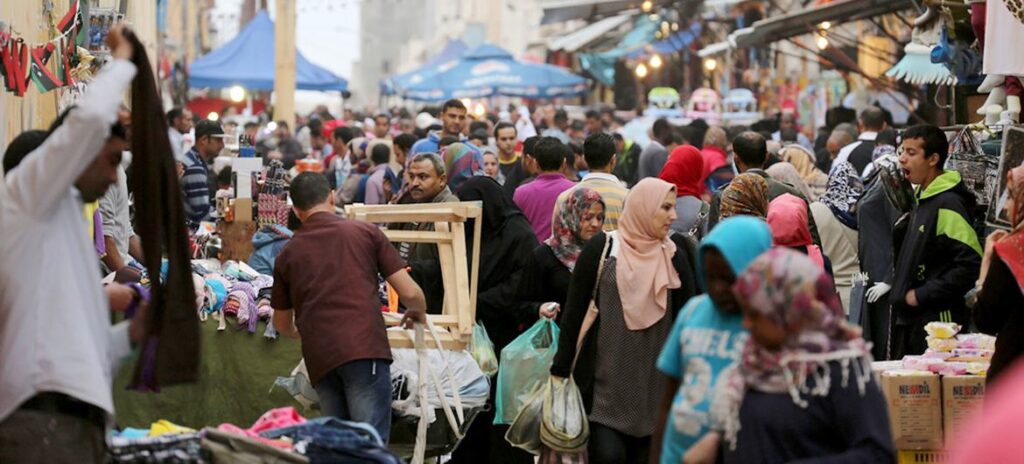Libya’s recent municipal elections have been described as a clear demonstration of the people’s determination to choose their representatives, according to the UN Secretary-General’s Special Representative for the country, Hannah Tetteh.
Briefing the Security Council, Ms. Tetteh, who also leads the UN Mission in Libya (UNSMIL), outlined the outcomes of the local council elections held last week and shared a proposed roadmap toward long-delayed general elections, originally planned for 2021.
“The Libyan people look to this esteemed Council for help, to ensure a solution to the crisis and support a political process that will result in elections and unified institutions not a succession of transitional governments.”
Hannah Tetteh
Nearly 15 years after the overthrow of former President Muammar Gaddafi, Libya remains divided between two rival administrations. The internationally recognized Government of National Unity is based in Tripoli in the west, while the Government of National Stability operates from Benghazi in the east.
Despite this political split, 26 municipalities successfully conducted elections on Saturday. Ms. Tetteh praised the electoral body, the High National Elections Commission (HNEC), for managing the process under difficult circumstances and urged all candidates to respect the results.
She expressed regret that several municipalities were prevented from participating. In the east, authorities ordered the suspension of elections in 16 areas, while voting materials were removed from centers in both the east and the south.
Attempts to derail the process also surfaced in the west, where HNEC offices in three cities were attacked or set on fire. However, two of those municipalities still went ahead with voting.
“By the end of polling day, voter turnout was 71 per cent. This is a clear signal that the Libyan people are yearning to elect their representatives. In some areas, this was the first time any elections have happened since 2014.”
Hannah Tetteh
At the same time, she stressed that the suspension of voting in large parts of the country “is an equally clear sign that not all are committed to supporting Libya’s democratic development and there is an urgent need for a reset in the political process.”
Roadmap To National Elections
In February, UNSMIL created an Advisory Committee to address the deadlock blocking national elections. After presenting its report in May, the mission launched nationwide consultations and even an online survey that drew more than 22,500 responses.
“The message we clearly received was the desire to stop the cycles of repeated transitional periods; preserve and strengthen the unity of the country and its institutions; as well as to renew their legitimacy through presidential and legislative elections; and end what was frequently referenced as foreign interference.”
Hannah Tetteh
Drawing on these findings, she proposed a roadmap based on three pillars: the creation of “a technically sound and politically viable electoral framework” for elections, the unification of state institutions through a single government, and structured dialogue to address core issues that will allow polls to take place smoothly.

She estimated it would take 12 to 18 months to complete the process. Early steps would include boosting HNEC’s capacity and amending the legal framework for both presidential and parliamentary elections.
“Following these two prior steps – which could be concluded over the next two months at most if there were the political will to do so – there should be agreement on a new unified government, capable of creating a conducive environment for credible elections while managing key governance functions effectively.”
Hannah Tetteh
Beyond the electoral roadmap, Ms. Tetteh also raised concerns about Libya’s volatile security environment.
Clashes erupted in Tripoli in May, and although a fragile truce is currently holding, violations have continued. UNSMIL also documented 20 deaths in custody since March, including that of political activist Abdel Munim Al-Maremi, who died in Tripoli last month shortly after a release order had reportedly been issued.
“These cases are the latest examples of a widespread and persistent pattern of grave violations perpetrated across the country with impunity, including against migrants and refugees, in some cases fueled by disinformation and hate speech.”
Hannah Tetteh
She also condemned the forced return of migrants to conflict areas, including Sudan. In Kufra, she noted, the number of Sudanese refugees now exceeds the local population. Ms. Tetteh urged international donors to step up humanitarian support to address this growing crisis.
READ ALSO: New York Court Scraps Civil Fraud Penalty Against Trump







![Abronye Bail Denial, A Blow to Justice And Free Speech 8 NPP ; Kwame Baffoe [Abronye ]'s bail denial in focus](https://thevaultznews.com/wp-content/uploads/2025/09/Kwame-Baffoe-Abronye-350x250.jpg)





![NPP ; Kwame Baffoe [Abronye ]'s bail denial in focus](https://thevaultznews.com/wp-content/uploads/2025/09/Kwame-Baffoe-Abronye-706x375.jpg)





![NPP ; Kwame Baffoe [Abronye ]'s bail denial in focus](https://thevaultznews.com/wp-content/uploads/2025/09/Kwame-Baffoe-Abronye-120x86.jpg)